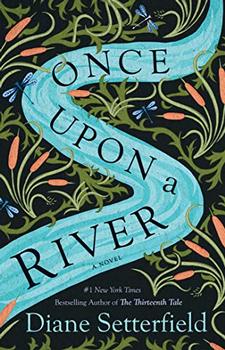Summary | Excerpt | Reading Guide | Reviews | Beyond the Book | Readalikes | Genres & Themes | Author Bio

With his short neck and his moon face, his almond eyes with their exaggerated upward tilt, his dainty ears and nose, the tongue that seemed too big for his constantly smiling mouth, Jonathan did not look like other children. As he grew it became clear that he was different from them in other ways too. He was fifteen now, but where other boys of his age were looking forward impatiently to manhood, Jonathan was content to believe that he would live at the inn forever with his mother and father, and wished for nothing else.
Margot was still a strong and handsome woman, and Joe's hair had whitened, though his eyebrows were as dark as ever. He was now sixty, which was ancient for a Bliss. People put his survival down to the endlessness of Margot's care for him. These last few years he was sometimes so weak that he lay in bed for two or three days at a time, eyes closed. He was not sleeping - no, it was a place beyond sleep that he visited in these periods. Margot took his sinking spells calmly. She kept the fire in to dry the air, tilted cooled broth between his lips, brushed his hair, and smoothed his eyebrows. Other people fretted to see him suspended so precariously between one liquid breath and the next, but Margot took it in her stride. "Don't you worry, he'll be all right," she would tell you. And he was. He was a Bliss, that's all. The river had seeped into him and made his lungs marshy.
It was solstice night, the longest night of the year. For weeks the days had been shrinking, first gradually, then precipitously, so that it was now dark by mid-afternoon. As is well-known, when the moon hours lengthen, human beings come adrift from the regularity of their mechanical clocks. They nod at noon, dream in waking hours, open their eyes wide to the pitch-black night. It is a time of magic. And as the borders between night and day stretch to their thinnest, so too do the borders between worlds. Dreams and stories merge with lived experience, the dead and the living brush against each other in their comings and goings, and the past and the present touch and overlap. Unexpected things can happen. Did the solstice have anything to do with the strange events at the Swan? You will have to judge for yourself.
Now you know everything you need to know, the story can begin.
The drinkers gathered in the Swan that night were the regulars. Gravel diggers, cressmen, and bargemen for the most part, but Beszant the boat mender was there too, and so was Owen Albright, who had followed the river to the sea half a century ago and returned two decades later a wealthy man. Albright was arthritic now, and only strong ale and storytelling could reduce the pain in his bones. They had been there since the light had drained out of the sky, emptying and refilling their glasses, tapping out their pipes and restuffing them with pungent tobacco and telling stories.
Albright was recounting the Battle of Radcot Bridge. After five hundred years any story is liable to get a bit stale, and the storytellers had found a way to enliven the telling of it. Certain parts of the tale were fixed by tradition - the armies, their meeting, the death of the knight and his varlet, the eight hundred drowned men - but the boy's demise was not. Not a thing was known about him except that he was a boy, at Radcot Bridge, and he died there. Out of this void came invention. At each retelling the drinkers at the Swan raised the unknown boy from the dead in order to inflict upon him a new death. He had died countless times over the years, in ways ever more outlandish and entertaining. When a story is yours to tell, you are allowed to take liberties with it - though woe betide any visitor to the Swan who attempted the same thing. What the boy himself made of his regular resurrection is impossible to say, but the point is raising the dead was a not infrequent thing at the Swan, and that's a detail worth remembering.
Tonight Owen Albright conjured him in the garb of a young entertainer, come to distract the troops while they awaited their orders. Juggling with knives, he slipped in the mud and the knives rained down around him, landing blade down in wet earth, all but the last one, which fell plumb into his eye and killed him instantly before the battle had even begun. The innovation elicited murmurs of appreciation, quickly dampened so the tale could continue, and from then on the tale ran pretty much as it always did.
Excerpted from Once Upon a River by Diane Setterfield. Copyright © 2018 by Diane Setterfield. Excerpted by permission of Atria Books. All rights reserved. No part of this excerpt may be reproduced or reprinted without permission in writing from the publisher.
The only real blind person at Christmas-time is he who has not Christmas in his heart.
Click Here to find out who said this, as well as discovering other famous literary quotes!
Your guide toexceptional books
BookBrowse seeks out and recommends the best in contemporary fiction and nonfiction—books that not only engage and entertain but also deepen our understanding of ourselves and the world around us.